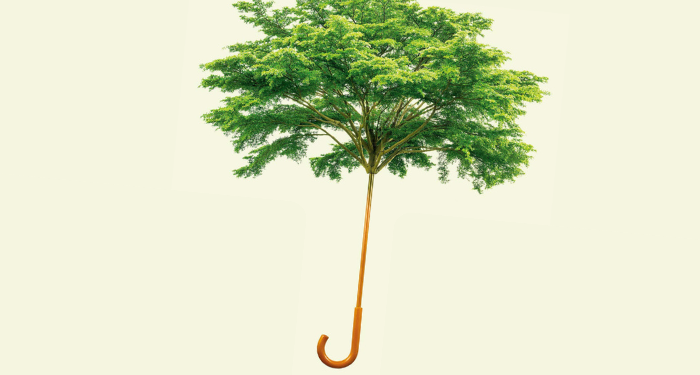
The 25 Best Climate Change Books to Add to Your TBR
It’s not news that the climate crisis is an increasing emergency worldwide. While it might feel hopeless, the best climate change books can help inform you and motivate you to make small changes in your own life or call for larger action from politicians and corporations. There is a plethora of climate change books, and they range from specific topics like the black market lumber industry and how plastic has invaded every part of our lives to overarching views on the climate in general and how to begin to take collective action.
There are climate change books for all readers, as well as some titles focusing on related environmental issues, and I’ve separated this list into nonfiction and fiction. You’ll recognize some big names in the climate activism world, like Bill Gates and Greta Thunberg, but you’ll also learn about lesser-known activists, like Robert Bullard, who have been fighting for change for decades. On the fiction side, you’ll see novels with harrowing predictions into what our world could look like if we head down the same path we’re currently on without making any changes toward reversing climate change.
Whether it’s an essay manifesto calling for action or a fictional dystopia that presents an all-too-real possibility for the future, these are the best climate change books you can’t afford to miss.
Best Climate Change Books: Nonfiction
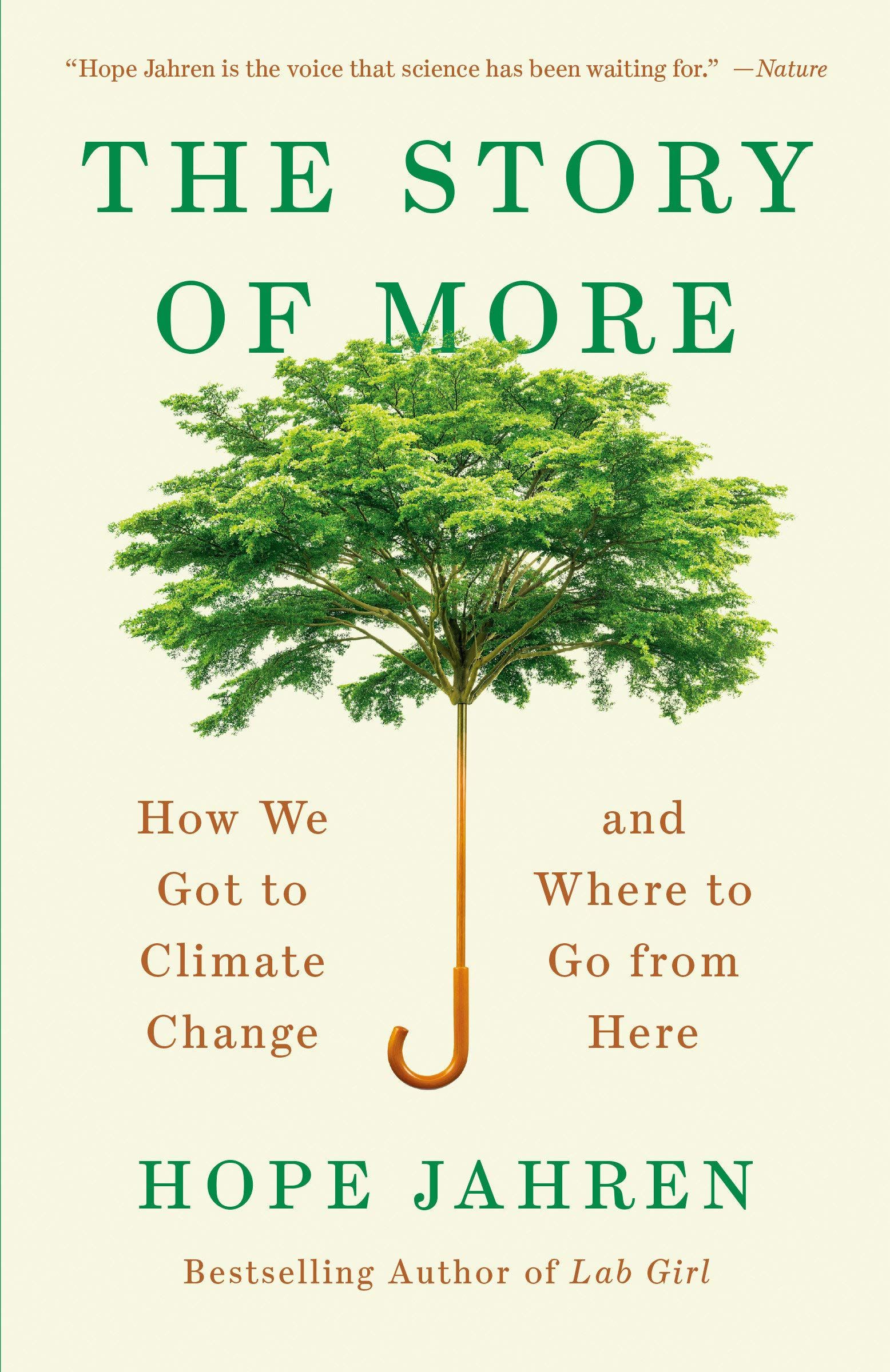
The Story of More: How We Got to Climate Change and Where to Go from Here by Hope Jahren
Hope Jahren is the award-winning geobiologist and author of Lab Girl, and The Story of More is her urgent letter to us all to listen to scientists and take action when it comes to climate change. She details key inventions and breakthroughs that led technology to be where it is today, but also cautions at mistakes made during those processes and how they have affected the climate as a whole. This is a great place to start if you are new to reading about climate change, as it’s a short overview of human history and a call to action.
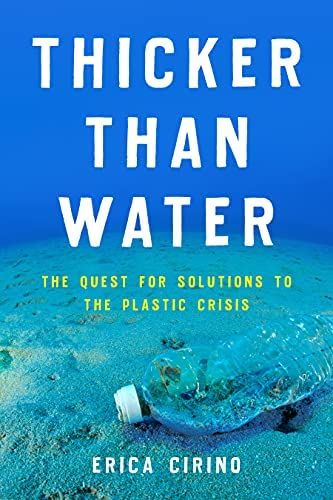
Thicker Than Water: The Quest for Solutions to the Plastic Crisis by Erica Cirino
Journalist Erica Cirino debunks common myths about plastics and delivers hard-to-swallow but necessary facts: less than 9% of recycled plastics are actually recycled, and the Great Garbage Patch is not actually a patch, but a floating debris pile that spans miles of ocean, mainly comprised of one-use plastics. Cirino travels the globe to meet with scientists at the forefront of these issues to give readers a close-up view of how exactly plastic affects us and what we can do to change it.
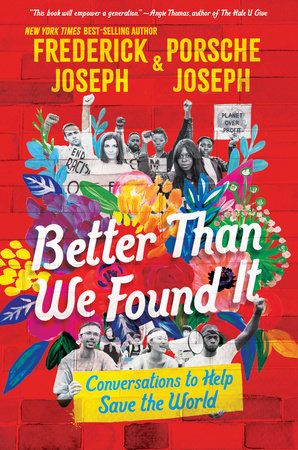
Better Than We Found It: Conversations to Help Save the World by Frederick Joseph & Porsche Joseph
The current generation of young people will be the generation to inherit the most global problems and crises all at once. Not only does this book touch on how to get involved in the climate crisis, it also gives advice for how to help take action on systemic racism, transphobia, the housing crisis, and more. It’s not only for young readers, and it’s a great place to start for dozens of interviews with current activists and politicians on how to get involved on the issues that matter most.
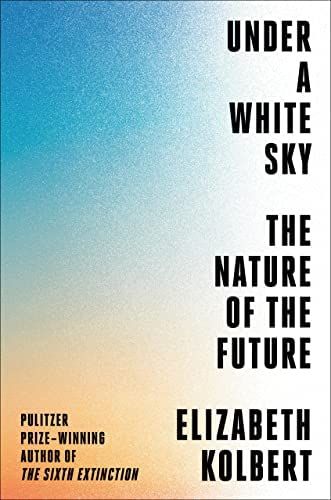
Under a White Sky: The Nature of the Future by Elizabeth Kolbert
This is a sweeping, overarching look at current scientific inventions, experiments, and ongoing research into preserving our planet. From Australian researchers developing a new kind of coral that can survive in hotter temperatures to biologists trying to preserve a species of rare fish, there’s something for everyone in this climate change book. Kolbert is also the author of The Sixth Extinction, another book on climate change focusing on the large extinctions throughout history.
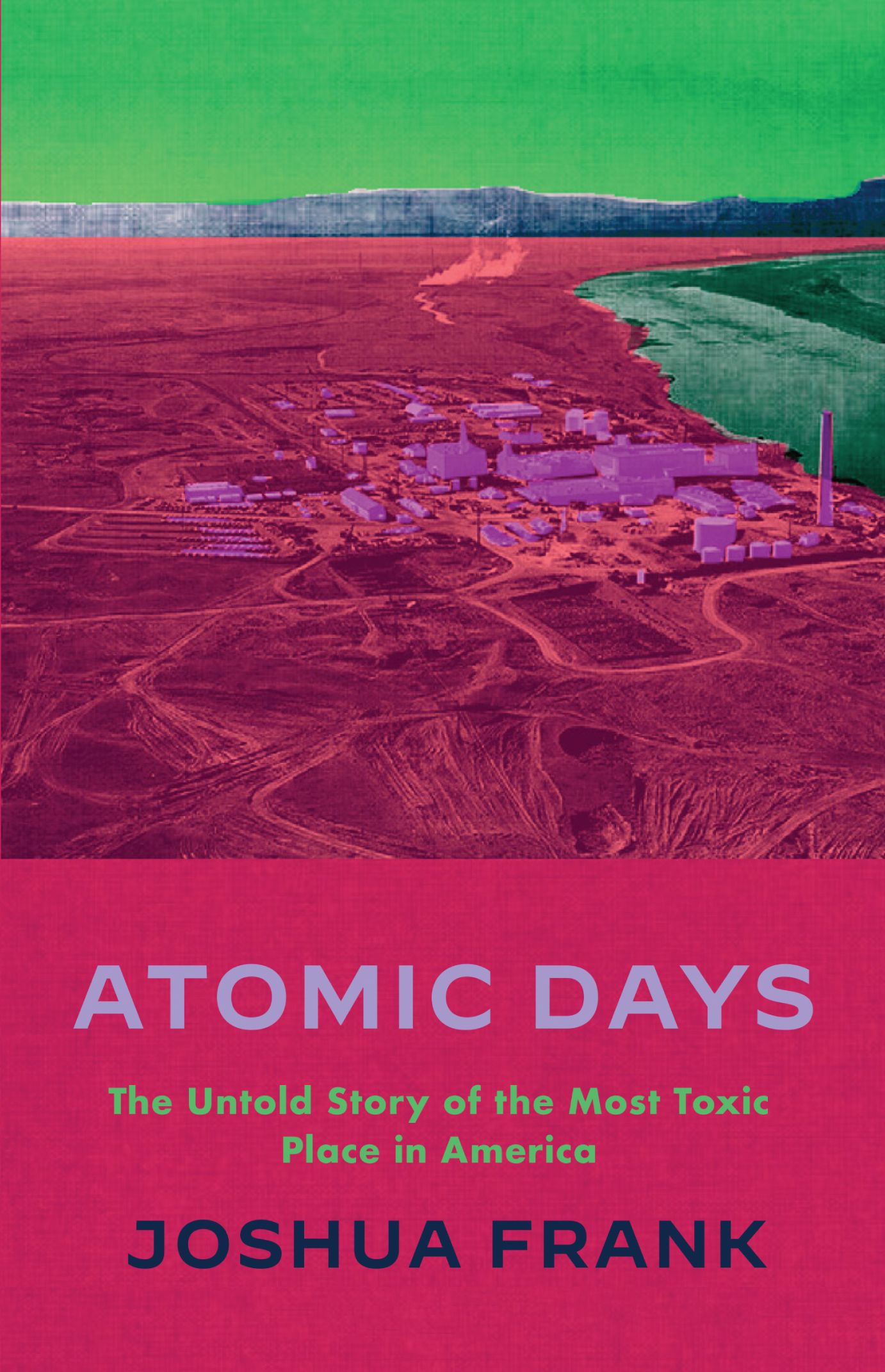
Atomic Days: The Untold Story of the Most Toxic Place in America by Joshua Frank
There’s a place in Washington state, unknown to the majority of Americans, that is the direct result of the nuclear race and the development of warfare. The Hanford Nuclear Reservation has more than 56 million gallons (yes, gallons) of radioactive waste. If there were an accident, the result could be more devastating than Chernobyl. And the huge underground tanks are old, crumbling, and leaking, allowing radioactive matter into water and soil reserves. This is an account of whistleblowers inside the project speaking out to try to reverse one of the largest messes the government has ever made.
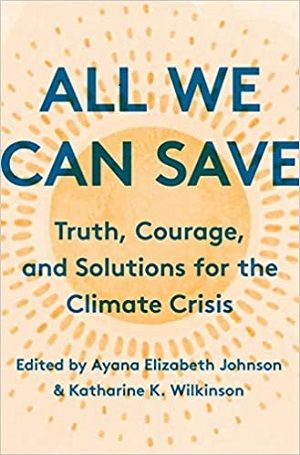
All We Can Save: Truth, Courage, and Solutions for the Climate Crisis edited by Ayana Elizabeth Johnson and Katharine Keeble Wilkinson
This intersectional feminist collection of essays is written by women at the forefront of the fight against climate change. These essays discuss why women are ultimately going to be leading the charge for change but have historically been left out of the conversation, and they aim to center them again. With poetry, art, and essays on climate change, progress, and actionable items for future activists, this collection is an inclusive guide for everyone who wants to be part of changing the future.
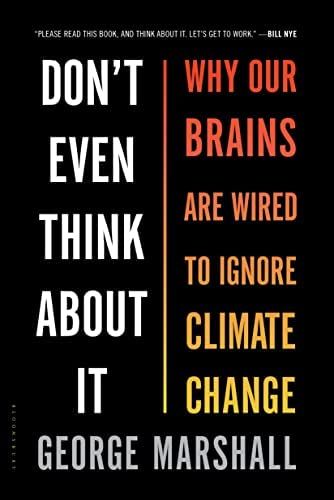
Don’t Even Think about It: Why Our Brains Are Wired to Ignore Climate Change by George Marshall
It’s a widely known fact that millions of people still deny climate change is happening, even despite all the evidence and scientists proving its existence over and over again. Marshall dives into why brains are wired to ignore this problem and how to change that wiring to begin believing in it so we will ultimately be able to change it. He seeks out those who deny climate change to understand their background and beliefs in order to ultimately change their minds.
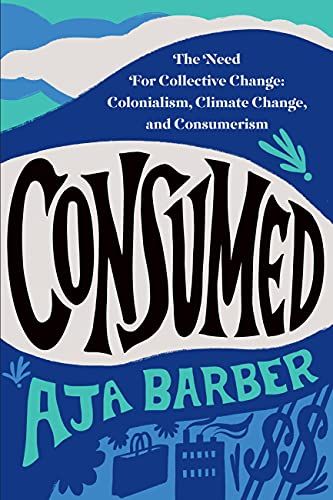
Consumed: The Need for Collective Change: Colonialism, Climate Change, and Consumerism by Aja Barber
Aja Barber takes readers back several centuries to explain how slavery and systemic racism have a huge role in climate change. For instance, the textile industry’s long history of slavery and poor working conditions for low-priced garments fueled fast consumerism, which led to surplus and trash contributing to climate change. This barely scrapes the surface of what Barber discusses, and readers will learn just how much our everyday shopping habits contribute to global warming.
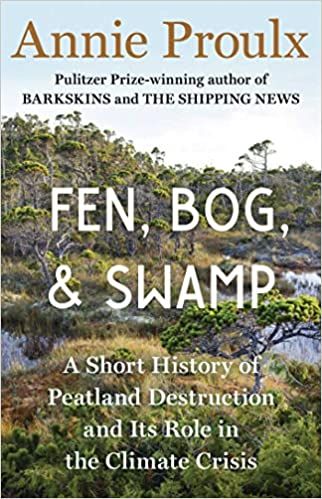
Fen, Bog, & Swamp: A Short History of Peatland Destruction and Its Role in the Climate Crisis by Annie Proulx
Readers may recognize Annie Proulx as a Pulitzer Prize-winning author, and while she is usually known for her fiction and short stories, this recent nonfiction book on a small portion of nature packs a punch. Proulx discusses the importance of swamplands and their storage of carbon emissions (those same emissions that, when released, speed up climate change), and how corporate greed contributes to the destruction of these kinds of environments.
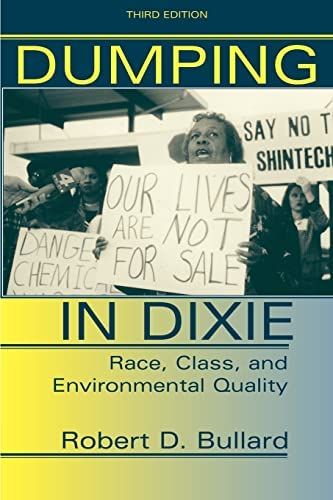
Dumping in Dixie: Race, Class, and Environmental Quality by Robert D. Bullard
Robert Bullard has been an activist for decades, and this book, which first came out in 1990, is still just as relevant today as it was back then. Bullard discusses environmental justice in relation to African American communities, and how they have been (and still continue to be) disproportionately affected by climate change and by corporations who take advantage of these communities. He also discusses organizing strategies and what individuals can do to help their own communities and those who are affected the most.
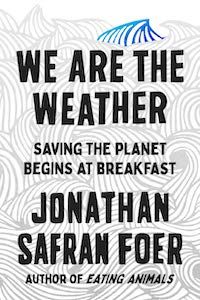
We Are the Weather: Saving the Planet Begins at Breakfast by Jonathan Safran Foer
Foer argues in his book that the future will know our generation as one divided: those who acknowledge that climate change is happening, and those who do not. And he says they will wonder why those who know it’s happening did not take actionable steps to make change in their lives to correct the situation. Often it is for comfort, ease, and familiarity that we refuse to change habits or behaviors, and Foer urges readers to have those conversations with loved ones and how to take steps to make those changes on individual levels to help combat the climate crisis.
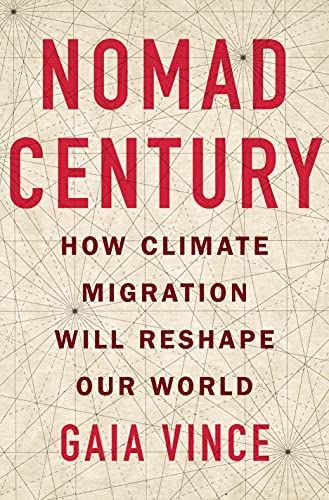
Nomad Century: How Climate Migration Will Reshape Our World by Gaia Vince
Vince is an award-winning science journalist who investigates how climate change will cause mass human and animal migration, reshaping how and where we live geographically. Whether due to wildfires, hurricanes, or major drought, natural disasters are becoming more dangerous and more deadly, threatening to permanently dislocate huge swaths of people as time goes on. Vince goes into when this might occur and how it will affect life going forward for everyone.
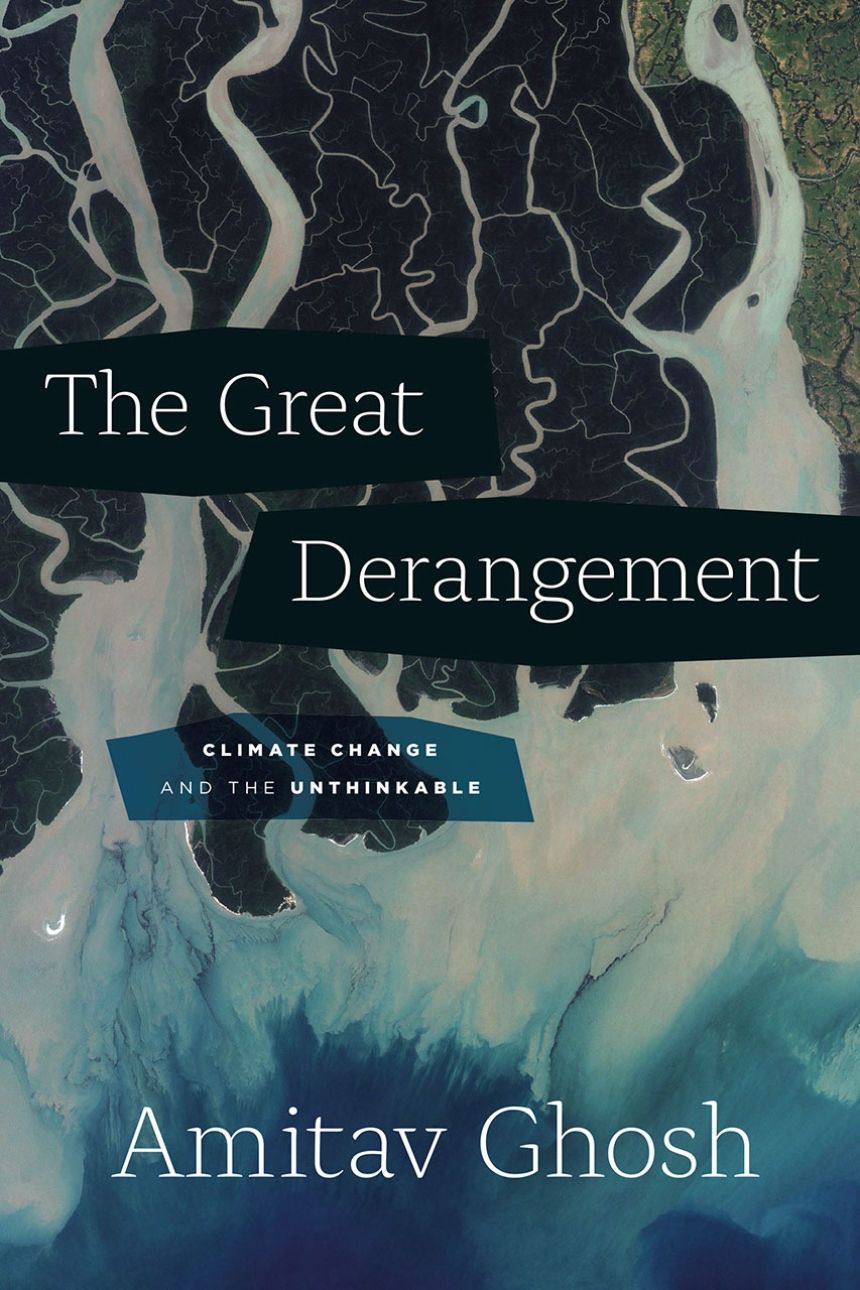
The Great Derangement: Climate Change and the Unthinkable by Amitav Ghosh
Ghosh approaches the topic of climate change in a call-to-action style, asking how future generations will feel about our current one, recognizing the catastrophic climate change but doing nothing about it. He also notes that politics is no longer a method people use to make collective change, which is why society as a whole has been unable to make progress in reversing climate change and instead argue moral rights via politics. He doesn’t mince words and asks readers to finally wake up and see the climate crisis right in front of us.
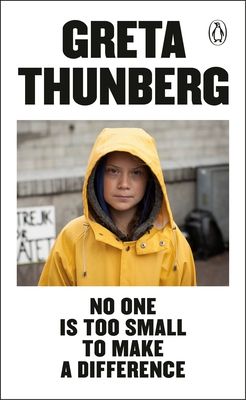
No One Is Too Small to Make a Difference by Greta Thunberg
Greta Thunberg made history when she skipped school to protest the climate crisis, eventually addressing the United Nations in an impassioned plea to reverse the damage done to the planet. This book is a collection of her speeches over time, at both large conferences and on the street in mass protests, and is a rallying cry to all people to stop ignoring the climate crisis in front of us and finally do something to stop it.
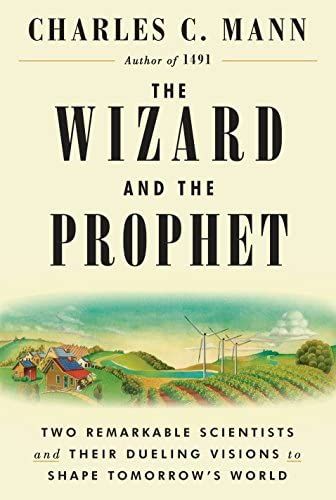
The Wizard and the Prophet: Two Remarkable Scientists and Their Dueling Visions to Shape Tomorrow’s World by Charles C. Mann
If you’re interested in the long history of research on the climate and those who have been fighting to preserve it even centuries before climate change was a phrase used in the general lexicon, this book covers two historic figures who ultimately led the way in the two dissenting groups on climate change. William Vogt, in the early 1900s, urged people to use as little of the Earth as possible because he feared it would run out of resources. Norman Bourlag, his opposer, believed that by using all the Earth had, humans would prosper. Mann discusses these two groups and how their thoughts on progress led to where we are today in the current climate crisis.
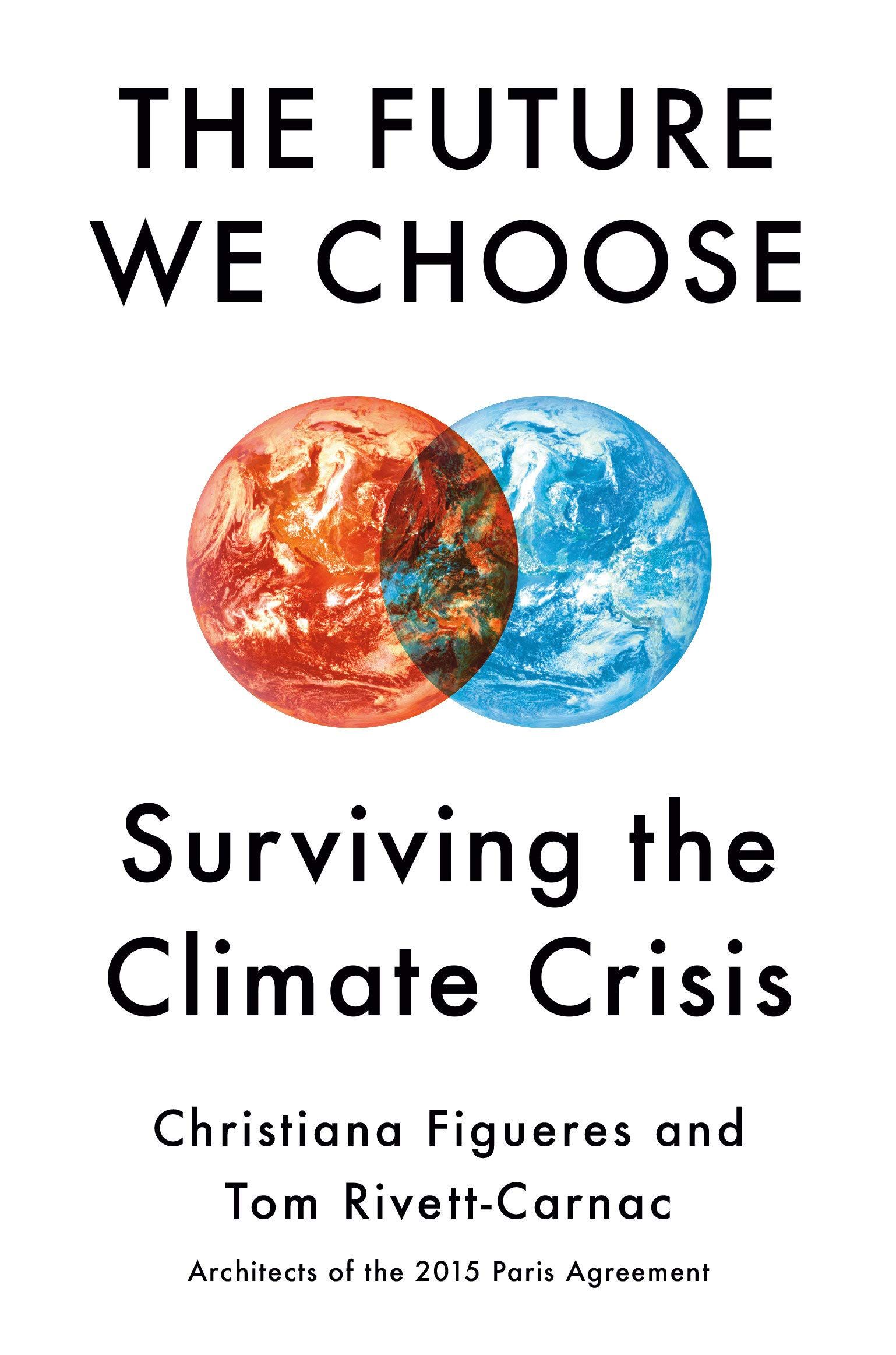
The Future We Choose: Surviving the Climate Crisis by Christiana Figueres and Tom Rivett-Carnac
Figueres, a globally recognized climate activist, and Rivett-Carnac, a climate advisor, come together to lay out two scenarios for the future of the earth. In one, they discuss the perils of what the planet will be if we do not meet the goals set out at the Paris Agreement in 2015, to reduce carbon emissions. In the other, they posit a hopeful look at what life could be like if we achieve those goals and turn the world into a carbon-neutral, recycling-focused place.
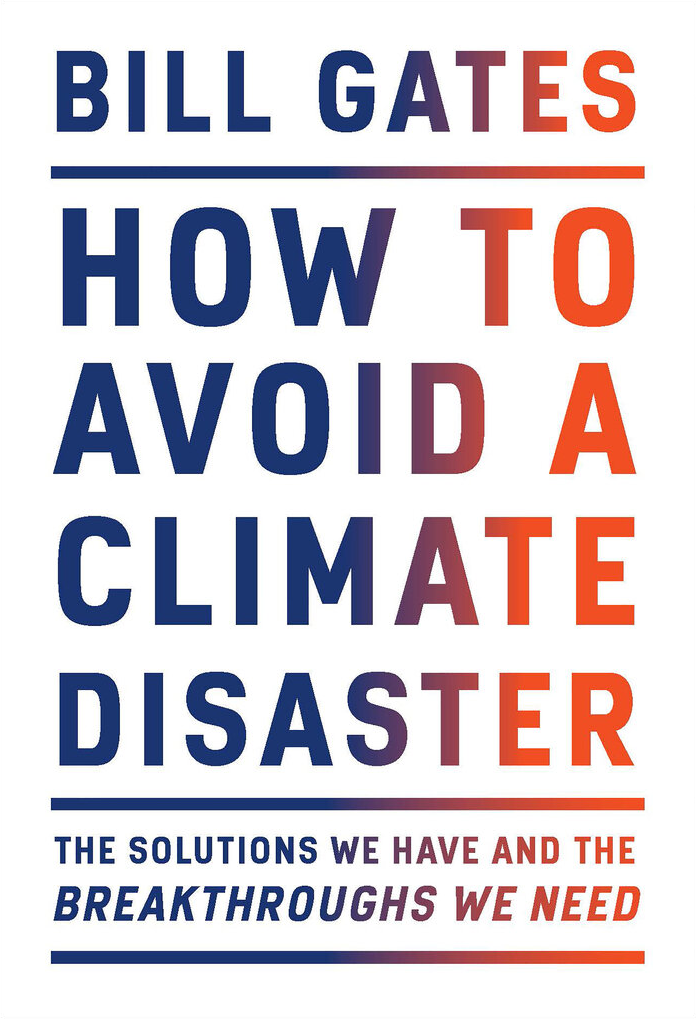
How to Avoid a Climate Disaster: The Solutions We Have and the Breakthroughs We Need by Bill Gates
No best climate change books list is complete without Bill Gates’s book on his decades-long journey to understand the climate crisis. He explains why he became so interested in the cause and how he began his own research into the effects humans have on the planet, stemming from his desire in his charity work to end poverty and disease. He has a unique perspective from a leader across the globe who has access to more resources than most, and he outlines what is working and what is still lacking in terms of solving climate change issues.
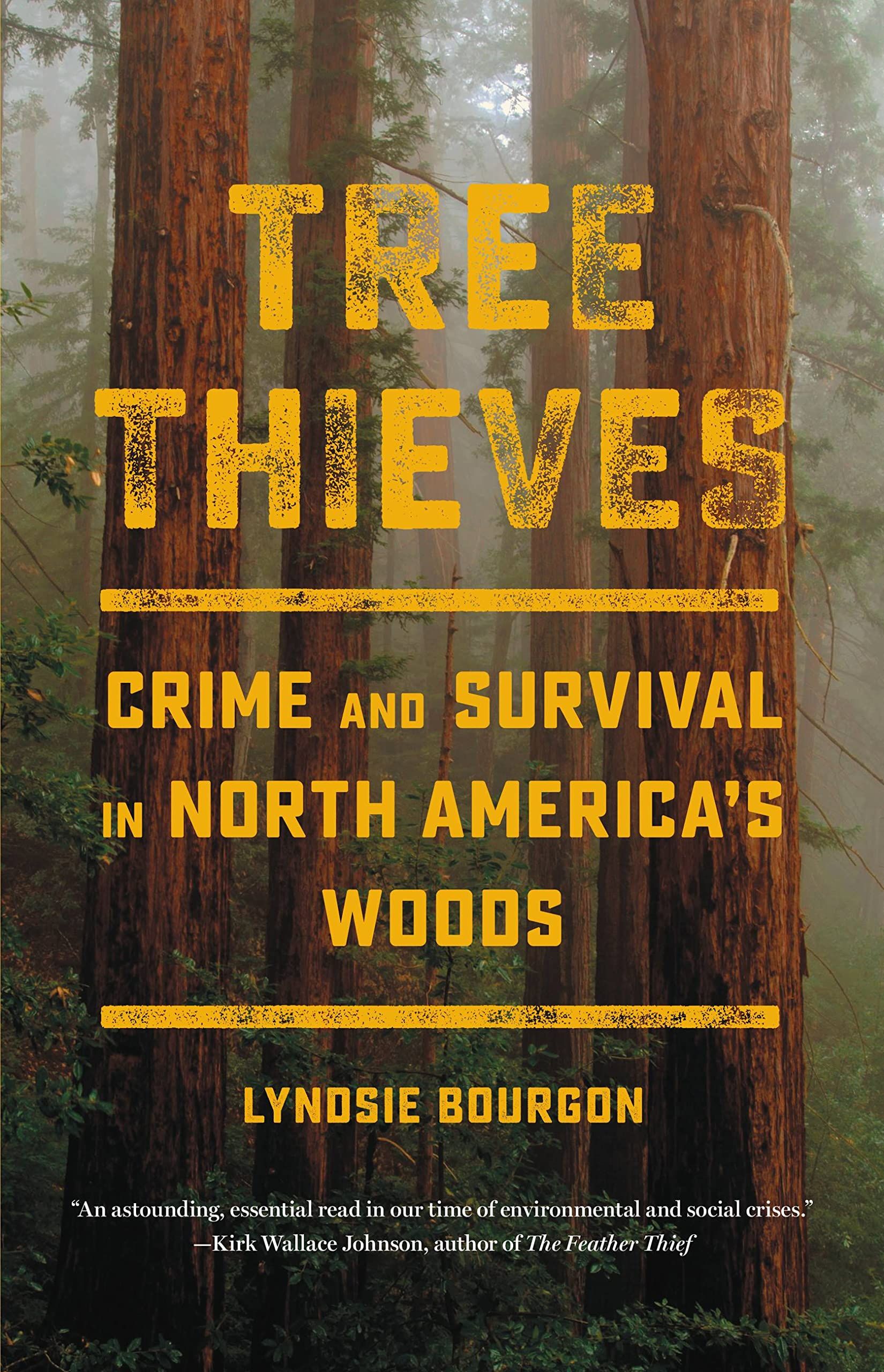
Tree Thieves: Crime and Survival in North America’s Woods by Lyndsie Bourgon
On the surface, this is a book about tree theft and crime in the lumber industry. But it goes much deeper, with Bourgon investigating the theft of old growth trees and how supposed environmental protection actually harmed the working-class communities and Indigenous communities in those locations that were supposed to be protected. By not protecting the people who lived on the land, the environmental activists actually harmed instead of helped the area.
Best Climate Change Books: Fiction
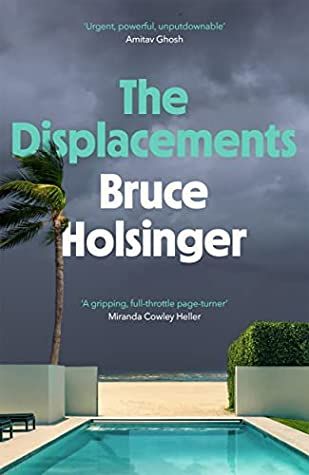
The Displacements by Bruce Holsinger
The Larsen-Hall family is the kind everyone is envious of: they seem to have it all. But when an unprecedented natural disaster hits, their home is destroyed, and their family is ripped apart. Suddenly they are in a place they never thought they’d be: a mass megashelter relying on government assistance to get them through. They are forced to confront the lives they had previously been living and how they will be able to move forward together in the face of their new world after a storm.
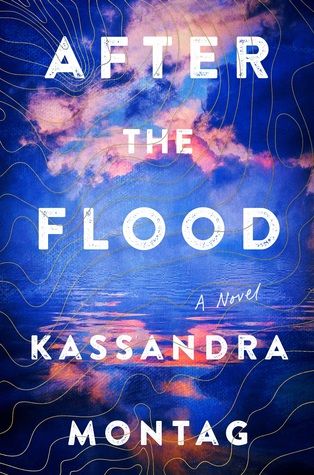
After the Flood by Kassandra Montag
The coastlines as we know it are gone, and after the great Six-Year Flood, most people have moved as far inland as possible, or they live permanently on the water. Myra is still reeling seven years later after her oldest daughter was taken from her unwillingly, and now is alone with her youngest, Pearl, as they try to get by. When Myra hears that her lost daughter may be up in a community near the Arctic Circle, she knows she needs help getting there. She befriends a crew on the way and will stop at nothing to find her lost daughter.
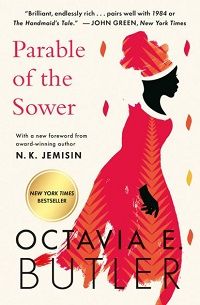
Parable of the Sower by Octavia E. Butler
This is a classic for a reason, and a harrowing one at that, painting a bleak future if we don’t reverse the effects of climate change quickly. Set in the (very) near future of 2025, Lauren and her family live on the outskirts of Los Angeles, trying to salvage a life from what’s left after the drug wars, the water shortages, the rampant disease. She soon finds herself among a community of refugees seeking safety, but they never know if safety is something they’ll be able to find in this new world.
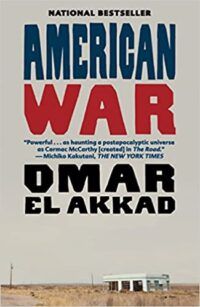
American War by Omar El Akkad
After the Second Civil War, America is a fractured place. Oil is outlawed, many coastlines are permanently flooded and underwater, and Sarat, even at a young age, knows not to trust anyone. She grows up in Camp Patience, a camp for displaced families due to the war, and despite all her misgivings, falls under the spell of a mysterious mentor who may or may not have good intentions for Sarat. This is a harrowing look at what war and division can do to an individual and a whole community.
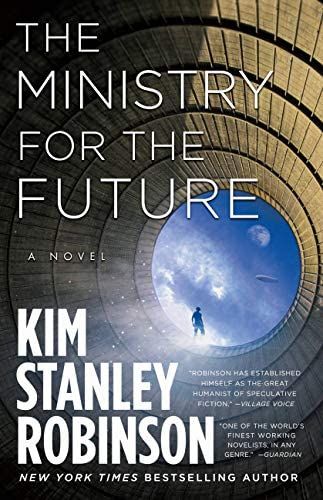
The Ministry for the Future by Kim Stanley Robinson
The Ministry for the Future was an organization created to preserve the world’s future generations and protect living creatures, fictionalizing what could happen if such an organization were to exist. The novel is not a far-off sci-fi romp; instead, it is an incredibly close look at a very real possible future the Earth may have, detailing characters who are affected by the ministry and its protections and the Earth itself and how climate change is affected after protections are put in place.
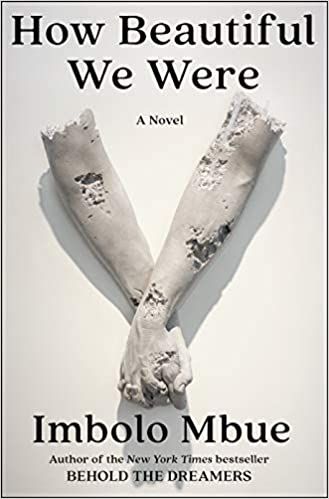
How Beautiful We Were by Imbolo Mbue
An American oil company has brought havoc on a small fictional African village and upended the lives of residents there. Pipeline spills have ruined farmlands and turned local water supplies toxic, and the local government only wants to make a profit. So the locals do the only thing they can and start to fight back. The novel is told through generations of those who are fighting, outlining the toll it takes over time and just how long their fight to make a change lasts.
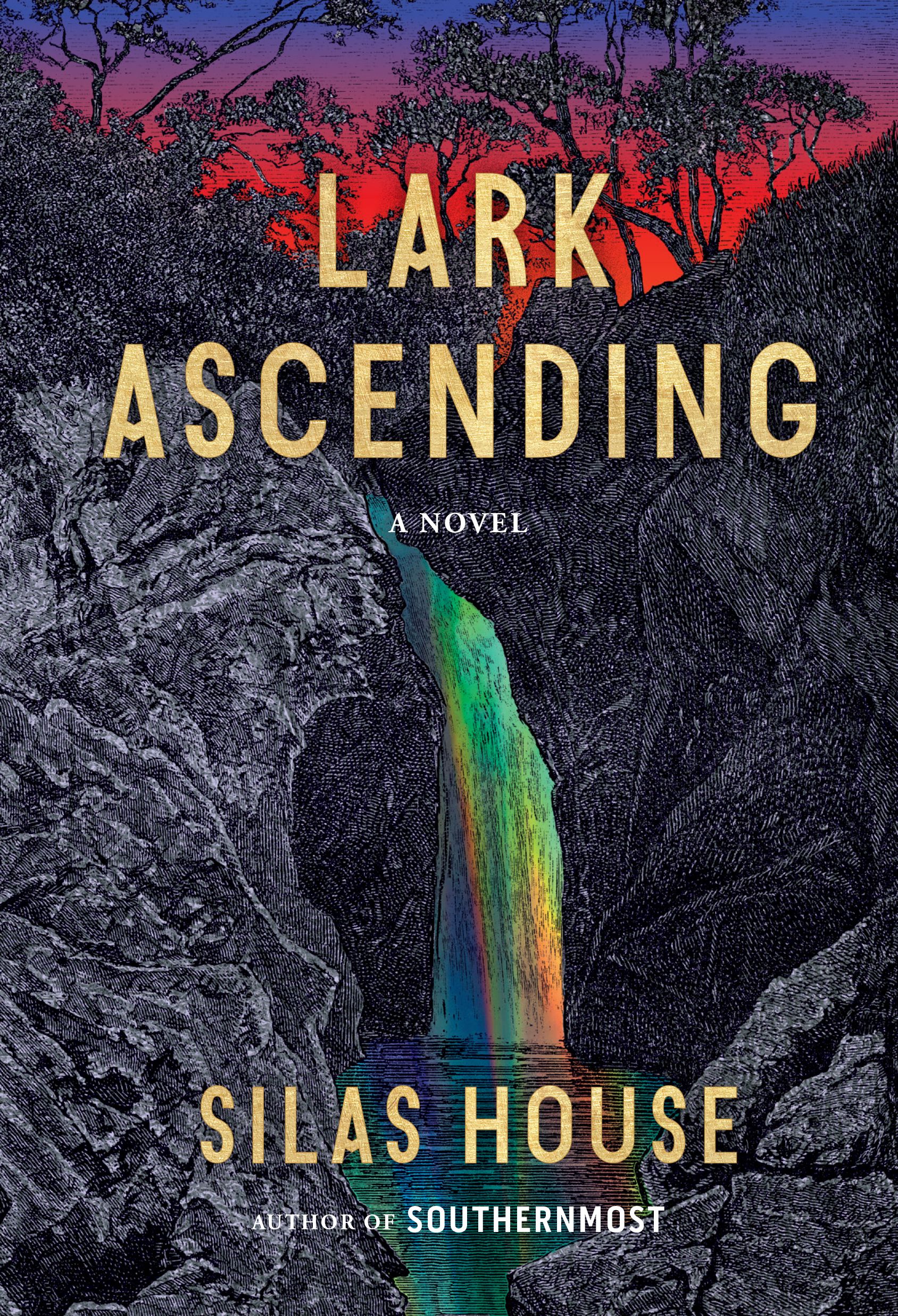
Lark Ascending by Silas House
In the very near future, after a series of deadly fires has swept through America, Lark and his family are moving from their home somewhere safe. But as religious nationalism also sweeps the country, they realize that nowhere is safe, and they cannot find the refuge they seek. They end up on an overcrowded boat headed for Ireland, desperately trying to escape. But after all that, safety still isn’t guaranteed, and Lark finds himself trying to find a makeshift home in this new world in which nothing is secure and everything is uncertain.
Want more climate change books? Check out a list of hopeful climate change books, books about nature, or read about the book industry’s impact on climate change.











